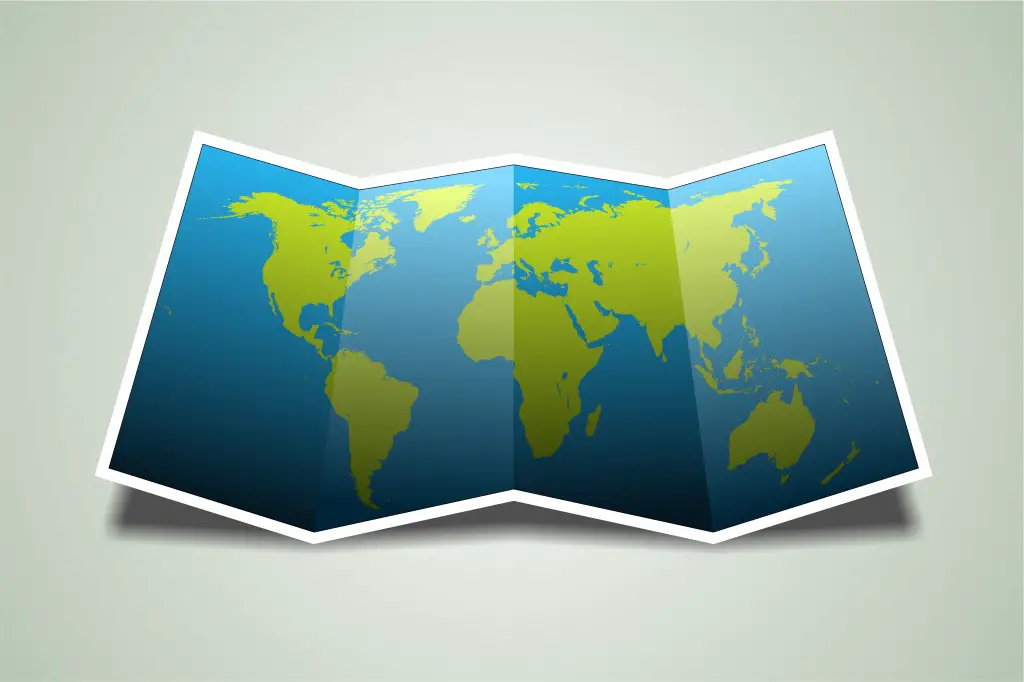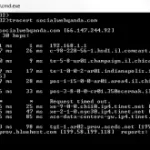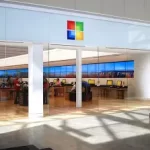 Not too long ago traveling by car in a new area meant consulting unwieldy print maps, stopping to ask locals for directions or even just making educated guesses and hoping you eventually reach your destination.
Not too long ago traveling by car in a new area meant consulting unwieldy print maps, stopping to ask locals for directions or even just making educated guesses and hoping you eventually reach your destination.
But with the proliferation of devices that receive GPS signals, the game has radically changed.
At their most basic level, GPS devices use these signals to calculate and display their current latitude and longitude.
But this alone won’t do travelers much good, so it’s fortunate that just about any GPS you’ll find at the store can do much much more.
They display detailed street maps in graphical format, provide turn-by-turn directions in a variety of soothing voices and even highlight points of interest including lodging, restaurants, gas and attractions.
Major producers of GPS navigation devices that you can mount in your car include Garmin, Magellan
and TomTom
.
But is this great new type of gadget already obsolete?
Despite their usefulness, dedicated GPS devices are now competing against another gadget that for most of us is already in our pockets: the smartphone.
Android phones use a free Google Maps app and iOS devices run either Apple Maps (which has had some well-publicized shortcomings) or a number of alternative GPS and Map apps for navigation.
Take a look at the variety of GPS Devices available today
How Many People Use Smartphone Navigation vs. Dedicated GPS?
Several critics, including Richard Read of Motor Authority, have declared the standalone GPS unit to be “dead,.”
He pointed to market research indicating that among a large sample of smartphone users, 80% reported using their phones for navigation, and 89% said this was causing them to use standalone units less.
He also points out the increasing rate of smartphone adoption in the past couple of years to paint a bleak future for standalone GPSs.
But What’s the Difference Between a GPS Device and Using iPhone/Google Maps Navigation?
If you own a smartphone, relying on it exclusively for navigation can be very convenient.
But it is worth still the time to consider your particular needs and understand the various differences between standalone GPS devices and smartphones.
First, one key difference is that standalone GPS devices actually store their own map data, compared to a smartphone which is cloud-based and requires a connection to download the maps as you go.
That means that if you don’t have a connection, whether it be 3G, 4G or Wifi, you’ll get a blank screen. This shouldn’t be a major concern, but it is something to keep in mind.
On a related note, however, the steady downloading of map data on smartphones eats up both battery life and data, which can be a disadvantage.
If you’re driving to a new establishment on the other side of town, this would be no problem, but a cross-country road trip would be a different story.
(There are a few potential workarounds, however, such as calculating your route on Wifi and then turning off your data before departing, but it is not going to be perfect. There are also some apps that can download maps for offline use.)
Standalone GPS devices, having their own map data locally, do not require any sort of data connection to function.
You do, however, need to be aware of map updates that periodically become available. Smartphones, on the other hand, are updated automatically since they pull their data from the cloud.
Browse through the most popular dedicated GPS Devices for your car
Key Features to Look for for Navigation
Other questions you should ask when determining your navigation tool include what travel time formats you prefer, how the device reroutes, how easily you can search for a destination, whether or not you mind tying up your phone for the whole journey and last but not least, how the devices physically attach to your dashboard.
The fate of the standalone GPS is not a unique story, as we see the same thing happening with many other dedicated devices such as music and DVD players.
Read says that “it only makes sense that such devices would be supplanted by roving computers capable of doing many things — and of being adapted to do others.”
Do you agree? Or do you still see a place for standalone GPSs and other one-function pieces of technology?
And what do you personally prefer for your navigation needs?
The Garmin Drive 51 is a popular dedicated GPS device. read user reviews to learn about its features
photo credit: fangol




Stand alone GPS units are unbeatable if you keep your maps updated! Using a phone, you might have your navigation interupted by a call, text, etc. My Garmin never deals with a signal outage, never a lost data connection, etc. Plus, many smartphones have over-heating problems when used for long periods of time. And, wait until you use that phone on a long trip. The data charges/overages alone could buy you a premium stand-alone GPS, and that’s just one trip! Stand alone is best!
Great points! I personally prefer a dedicated unit as well, for many of the reasons that you have listed here.
As much as I see standalone GPS still being relevant, I only checked prices to calculate how much money I saved by not buying one!
Not so donald. Just download maps before you leave for your whole trip; just like a garmin or other. Very very little data charge when maps are on your phone.
I prefer my Garmin GPS over google maps or mapquest. My Garmin is way more accurate regarding the distance and time of travel. I live in Michigan and took a trip to Disney world. I compared Google maps, MapQuest, and my Garmin. The total distance varied between my Garmin and the other two programs by around 10 miles. But the time difference was way off. My Garmin was spot on with the time it took me to get there, while google maps and mapquest both stated that it should have taken me another 4+ hours to get there. I have compared my next trip with all three options again, and once again I will be going with my Garmin. I was smart and got the lifetime map updates for my garmin, so until it dies, I’ll be sticking with it. I will say that I do use my phone to find places/addresses more than my garmin. Mainly because I always have my phone on me, but I always verify with my gps before inputting anything.
Hi,
Can we find out why is this difference in the time of travel between Google maps and dedicated GPS devices?
Thanks a lot,
Eugen
I also agree with all that was said above, although, I must say that I have used my Android OS phone for navigation, amongst other things and find Google Maps/Navigation to be far superior to that of some standalone devices. With that said, I can’t speak for the 2012-2013 standalone devices on the market, so my opinion could very well be nonsensical.
Aside from the free map updates that follow the first 30 days of ownership and the included IQ routes, that compared to using Google, owning a standalone device can become costly. With Google maps, It is certain that I will receive updates on a frequent basis, including; POI (Points of Interest), street view, terrain view, satellite view, traffic view, bicycling, et cetera. I must mention that google supplies all these at zero cost to me (depending on how one perceives “free”, considering google is the company of topic). TomTom does offer services such as fuel prices, but carry a yearly cost. There are many free apps on Google Market, such as Gasbuddy.com, which free of charge, will inform you of fluctuating gas prices and will also warn you (via email) of potential price increases. The $20 that is asked for this service is clearly overpriced and would do TomTom justice if it was around $5. Gasbuddy.com’s model is similar to that of IQ routes. The community as a whole is what allows the app to function. As fuel prices fluctuate, the user is awarded points by submitting fuel prices as they change. Essentially the app acts as a social hub, which connects individuals who share a common goal, which is clearly to save money! Let me be clear, in no way am I promoting gasbuddy, as I am only looking to make a point. Point being, as long as we witness companies such as Garmin and TomTom pushing profits before innovation, it will not be long before demand for standalone devices are forced to bend to consumer demands or face their ultimate demise. 😉
I will point out that the cost of standalone devices have dropped considerably and offer some include lifetime map updates. One year ago I had become irritated with the idea of buying my second $50.00 map upgrade. Then I realized that this map cost seemed geared toward persuading consumers opt out of a map upgrade and purchase an new device that includes a new map guarantee. This is foolish of TomTom, considering my unit functions perfectly aside from an outdated map. Does TomTom want me to pitch a fully functional device, only to have it replaced with a new one? This isn’t a responsible business practice, after all aren’t we supposed to begin considering the environmental impact in which electronic pose? It isn’t like Google is innocent either….Anyhow, I can say that my opinion today compared to one year ago regarding standalone devices is favorable in comparision to Cellular applications. Not only due to the numerous great suggestions from those above me, but for a more obscure reason. Never shall we allow a single company control of the market, i.e., Google. TomTom and Garmin have clearly made great strides in their product development and seem to have met some of their customers demands. However, I feel if they were to start the implementation of a system which encourages companies and consumers to start consideration of the environment and not putting profits ahead of the future of our environment. All this can be easily done by making maps updates more affordable for the average consumer, and implementing a buy back program that would award credit toward a newer device, with recycling becoming their first concern. Not only would this create less waste, but it would encourage consumers to spend more. Sorry, early morning rant.
On a side note, I’m in search of some advice please. I’m in the market for a GPS device for auto travel as well as off road travel, such as Geocaching. Does anyone know of such a device, which is designed for hiking as well as long distance travel? Thanks
Don’t get me wrong, a stand-alone GPS was good back in the day, but the smartphone has made them obsolete!
I use my smartphone instead of dedicated GPS unit. With solar powered charger hanging off my backpack it can keep going much longer.
In Australia, our mobile phone coverage concentrates on populated areas only. Since we are sparsely populated, therefore, mobile phone coverage is unreachable over 70% of the remote area. Dedicated GPS provides navigation in these areas where no smartphones can fulfill those needs, and will continue to be an expensive niche market device and less users friendly alternative.
Had Garmin for 7 years, but since getting an unlimited plan, google drive seems to be much better on my phone. google tries to do to much and there is much to much clicking and choices, but when you get past that it is very good. google never heard of the kiss principle.
In July 2021, I still have few apps installed on my tablet as GPS only. Time to time I will play with other apps too. This year, Google Map is getting better and can find a lot of places that other GPS apps unable to locate. But there are few apps that have better features than Google Map, for example, can key in a few destinations,… I still sometimes uses standalone GPS.
Standalone GPS advantages:
Faster startup and so much shorter access time.
More frequent updated maps and still lots of features more than Google Map.
They are made to more withstand hot heat up in the car and from sunshine UV ray.
They rarely hang and last longer about 10 years.
Standalone GPS disadvantages:
Lots of the manufacturers make you pay to have those features even you have bought them not so cheap.
You cannot have multiple GPS apps.
Some manufacturers suddenly stopped supporting.
Still have maps flaws but better than all GPS apps.
In terms of time, Google Map will be even better, same as other GPS apps, so standalone GPS will be dying soon. Furthermore, lots of us have old phones and tablets lying around, so we use them as GPS devices with free apps. Why pay when you can get free?